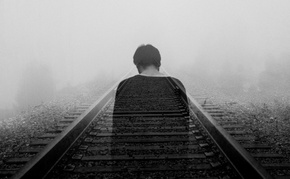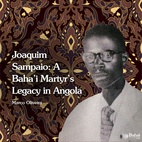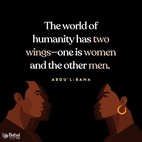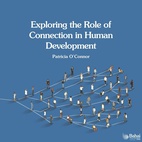The views expressed in our content reflect individual perspectives and do not represent the authoritative views of the Baha'i Faith.
When we fail to know who we are, it can lead to untold suffering and wasted, misspent lives — ultimately contributing to the causes of wars and strife and keeping humanity from its high and noble birthright.
Our crisis of identity has become especially prevalent in this age of rapid change in our cultures. Because we do not know who we are, we do not have a clear sense of our purpose and how we should live our lives to realize our true potential.
The Baha’i teachings ask each one of us to expend our energy on inner spiritual search in order to know ourselves: “… man should know his own self and recognize that which leadeth unto loftiness or lowliness, glory or abasement, wealth or poverty.”
When we fail to know ourselves, we lose the greatest human opportunity for growth.
Our cultures play a part in keeping us from knowing who we are. Raised with the definitions and understandings given to us by our cultures, based on faulty conceptions of reality tainted with ignorance, prejudice, hatred, and self-centeredness, we wander in a wilderness of unknowing.
RELATED: What Gives People Hope for the Future?
However, hope lives. We currently live in a world that allows us the opportunity to investigate and interrogate our beliefs using reason and the vast accumulated knowledge from many cultures and wisdom traditions throughout history. This has never happened before.
With this opportunity for investigation open to us, we can each now address the ancient question of who we are, which humans have faced since they first attained self-consciousness. We can follow the dictum to “know thyself,” found throughout the philosophies and religions of the past, in a more thorough and independent way to gain a more complete understanding than was available to our ancestors.
If we wish to free ourselves from the suffering that both we as individuals and societies are facing, we would do well to take some time to answer this most profound and essential question of who we are.
Because we have failed to adequately answer this question, we are surrounded by despair and confusion. Until we find a more comprehensive and satisfactory answer that conforms with reality and not our idle and vain fancies, imitations, and imaginations, we will continue to live lives that are filled with doubt, corruption, and hopelessness.
The Path to True Happiness
This lack of self-knowledge is the real problem of our age — rather than the many side issues that consume our time, energy, and attention.
We have been taught to look for solutions and happiness outside of ourselves, but until we have done the inner work of coming to know ourselves and adjusting our lives according to that reality, we will not only be wasting valuable resources, but also may be contributing to further suffering and oppression based on false understandings and narratives. Until our inner world is understood and improved, we will have a limited effect on our outer world. After all, our material reality is shaped by the condition of our minds and hearts.
Once we improve them by finding our true selves, we can begin to build a better world.
RELATED: Striving Through the Messy Muddle of Our Lives
Not only do we not know who we are, we also do not seem to know how to best answer that question or feel the need to do so. Most of us are content to live according to what we have been told is the good life, until we begin to realize that we are not truly happy. We sometimes think that if we had still more things, increased levels of material success, and whatever we were told would bring us happiness, we would be truly happy.
The Baha’i teachings say that only those who get off the treadmill of endlessly seeking fulfillment in material pursuits will find true happiness — which can be obtained by transcending self-interest and doing good for others:
… the honor and distinction of the individual consist in this, that he among all the world’s multitudes should become a source of social good. Is any larger bounty conceivable than this, that an individual, looking within himself, should find that by the confirming grace of God he has become the cause of peace and well-being, of happiness and advantage to his fellow men? No, by the one true God, there is no greater bliss, no more complete delight.
By cultivating a moral and spiritual character within ourselves and then working selflessly to transform our social order in conformity with the principles of truth, justice, and unity, we can make a better world for ourselves and others.
Only when we do this can we find the happiness that we sought so vainly when pursuing selfish and material goals. Focusing our energy on building the capacity for goodness and well-being in ourselves and others improves both the material and spiritual conditions for all. The chaos, confusion, and wrongs that exist in the world begin to fade away in the light of the positive transformation of both our inner and outer lives, and we will progressively become better equipped to deal with the problems we face.

















Comments
Sign in or create an account
Continue with Googleor